Georgia Tech’s College of Engineering consistently produces articles, content, and videos highlighting our students, staff, faculty, and research. This includes stories about artificial intelligence, robots, engineering systems, space exploration and rockets, medical advances, and more.
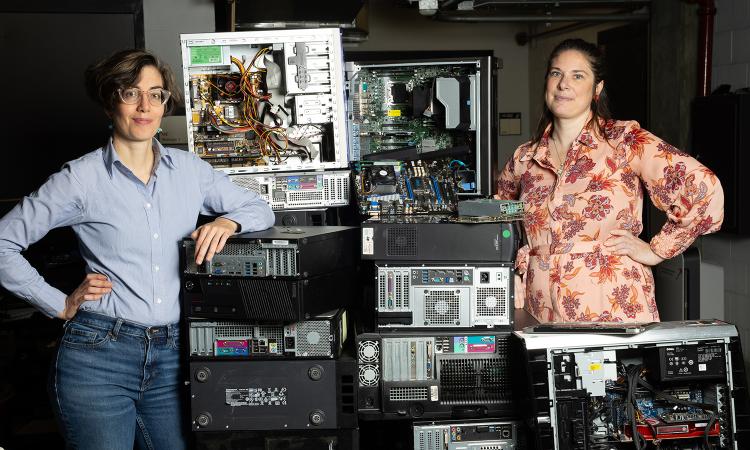
To Hell With Garbage
In the quest to reduce, reuse, and recycle, Georgia Tech engineers are at work on ways to divert more trash from landfills, tame plastic pollution, and cut waste from electronics.
In the quest to reduce, reuse, and recycle, Georgia Tech engineers are at work on ways to divert more trash from landfills, tame plastic pollution, and cut waste from electronics.
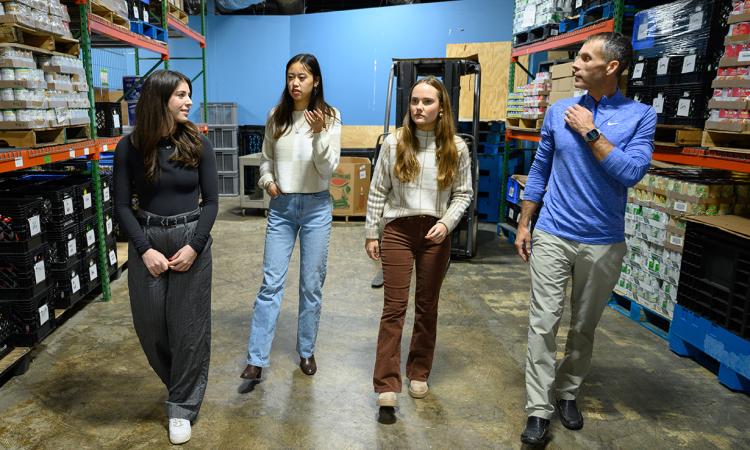
ISyE Students Help Food Pantry Double Its Impact
The group transformed operations at a local nonprofit through their capstone project, using teamwork, Python technology, and innovative solutions.
The group transformed operations at a local nonprofit through their capstone project, using teamwork, Python technology, and innovative solutions.
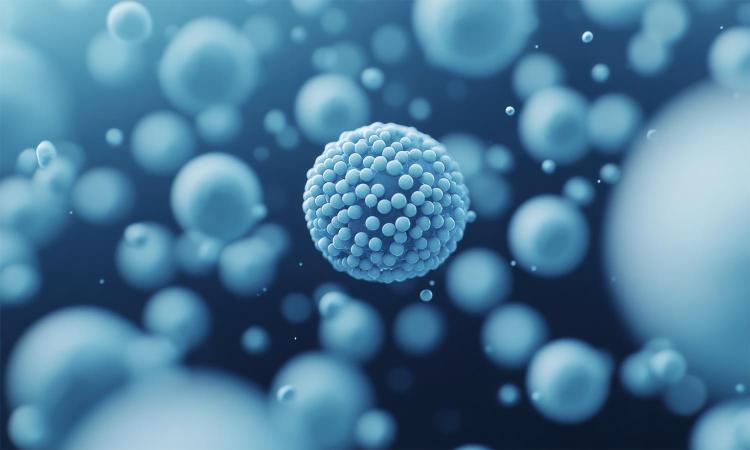
Special Delivery Nanoparticle Sidesteps the ‘Middlemen’
BME researchers have developed a stem cell treatment for genetic blood disorders without chemotherapy and painful bone marrow procedure.
BME researchers have developed a stem cell treatment for genetic blood disorders without chemotherapy and painful bone marrow procedure.

Raheem Beyah Named IEEE Fellow
Engineering dean and cybersecurity expert elevated to the highest level of membership in the world’s largest technical professional organization.
Engineering dean and cybersecurity expert elevated to the highest level of membership in the world’s largest technical professional organization.
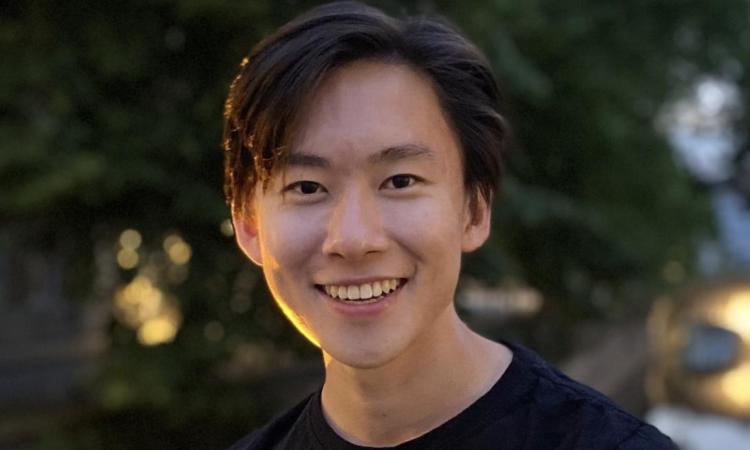
ECE Student Receives Marshall Scholarship
James Shin joins a group of 36 Marshall Scholars pursuing advanced degrees in the United Kingdom, where he will study physics and public policy to advance engineering in space.
James Shin joins a group of 36 Marshall Scholars pursuing advanced degrees in the United Kingdom, where he will study physics and public policy to advance engineering in space.

$100M Investment Will Boost Georgia Tech, Absolics Electronics Packaging Partnership
The semiconductor packaging company and Tech's 3D Packaging Research Center will develop glass core substrate panel manufacturing with the funding from the CHIPS National Advanced Packaging Manufacturing Program.
The semiconductor packaging company and Tech's 3D Packaging Research Center will develop glass core substrate panel manufacturing with the funding from the CHIPS National Advanced Packaging Manufacturing Program.
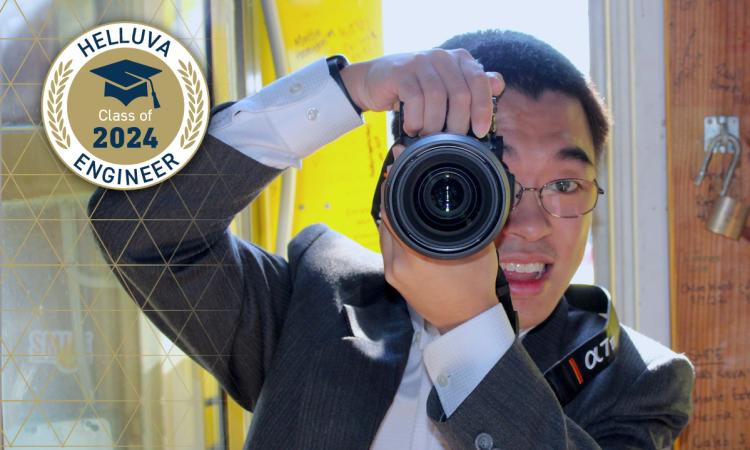
Capturing the Moment
Photographer and AE master's student Samuel Luong sees Tech Tower as a beacon of innovation, and he always dreamed of reaching the top before Commencement.
Photographer and AE master's student Samuel Luong sees Tech Tower as a beacon of innovation, and he always dreamed of reaching the top before Commencement.

Civil Engineering Student Named Among Top Army ROTC Cadets Nationally
Mason Ladd graduates with a 4.0 from Georgia Tech and the No.2 ranking among new commissioned officers, according to the U.S. Army Cadet Command.
Mason Ladd graduates with a 4.0 from Georgia Tech and the No.2 ranking among new commissioned officers, according to the U.S. Army Cadet Command.
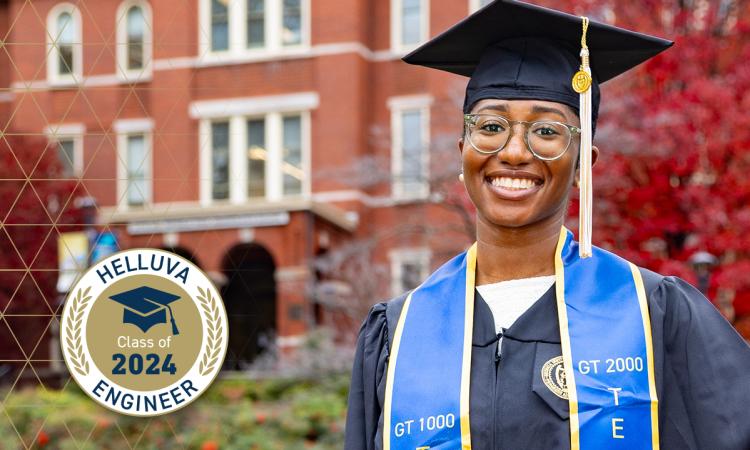
Afeni Laws is Headed from North Ave to the OR with BME, Biology Degrees
The first-generation biomedical engineering graduate is finishing a pandemic-altered journey that ended up showing her just how resilient and focused she could be.
The first-generation biomedical engineering graduate is finishing a pandemic-altered journey that ended up showing her just how resilient and focused she could be.

Heck, Xia Elected to National Academy of Inventors
ECE, BME researchers honored for their innovations in AI speech processing and nanomaterials for medicine and electronics.
ECE, BME researchers honored for their innovations in AI speech processing and nanomaterials for medicine and electronics.
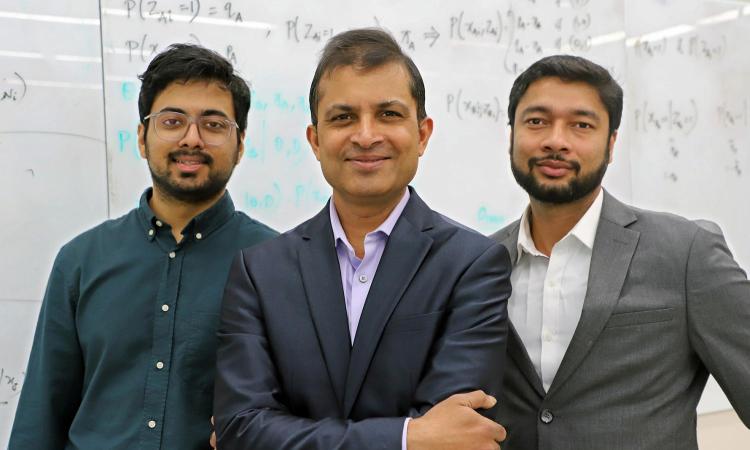
New Toolkit Allows Researchers to Zoom Into RNA Activity
BME researchers have developed an analytic technique that can focus on single RNA molecules with unprecedented clarity, opening paths to explore the architecture, machinery, and activity of cells in new ways.
BME researchers have developed an analytic technique that can focus on single RNA molecules with unprecedented clarity, opening paths to explore the architecture, machinery, and activity of cells in new ways.

ECE Researchers Find Vehicles Susceptible to Remote Cyberattacks
New vulnerabilities could provide criminals with wireless access to the computer systems in automobiles, aircraft, factories, and other systems, but the team also has introduced a comprehensive defense.
New vulnerabilities could provide criminals with wireless access to the computer systems in automobiles, aircraft, factories, and other systems, but the team also has introduced a comprehensive defense.
Suman Datta Honored for Career Excellence in Semiconductor Research
Semiconductor Research Corp. and Semiconductor Industry Association have presented the ECE and MSE researcher with the 2024 University Research Award for his lifetime contributions to the industry.
Semiconductor Research Corp. and Semiconductor Industry Association have presented the ECE and MSE researcher with the 2024 University Research Award for his lifetime contributions to the industry.
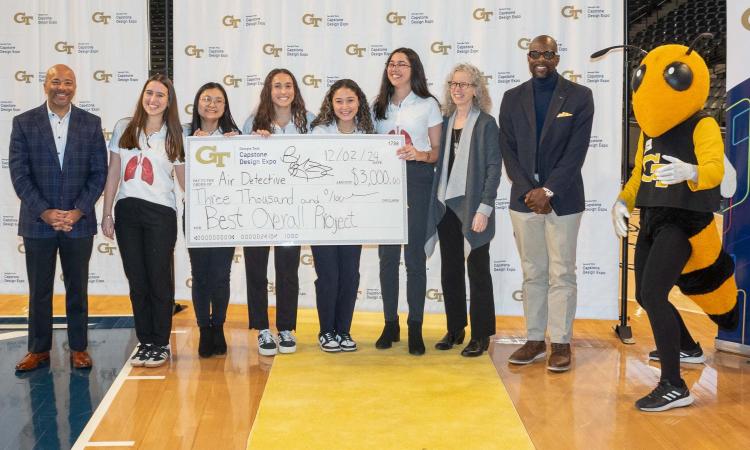
Lung Surgery Patients, Lost Hikers Could Benefit from Top Capstone Expo Projects
The fall 2024 showcase of senior design projects across engineering, design, and computing included more than 100 teams presenting their ideas.
The fall 2024 showcase of senior design projects across engineering, design, and computing included more than 100 teams presenting their ideas.
Semiconductor Research Corp. and Georgia Tech Secure $285M SMART USA Institute
The-first-of-its-kind CHIPS manufacturing institute will use digital twins to accelerate the development and deployment of domestically produced microelectronics.
The-first-of-its-kind CHIPS manufacturing institute will use digital twins to accelerate the development and deployment of domestically produced microelectronics.
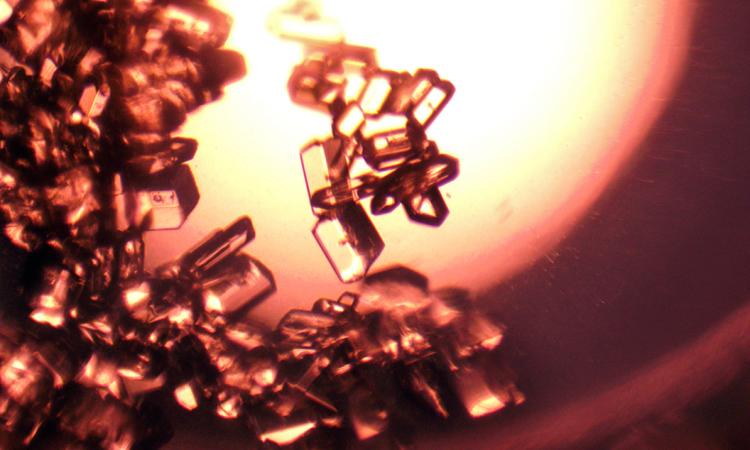
A New Carbon-Negative Method to Produce Essential Amino Acids
ChBE and bioengineering researchers demonstrate a technique that synthesizes amino acids needed for chemicals, cosmetics, and more while using more carbon than it emits.
ChBE and bioengineering researchers demonstrate a technique that synthesizes amino acids needed for chemicals, cosmetics, and more while using more carbon than it emits.

From Team USA to Georgia Tech: Sierra Venetta Finds Success On and Off the Ice
The graduating biomedical engineering student found her elite figure skating career was excellent preparation for the rigors of college and working in a research lab.
The graduating biomedical engineering student found her elite figure skating career was excellent preparation for the rigors of college and working in a research lab.
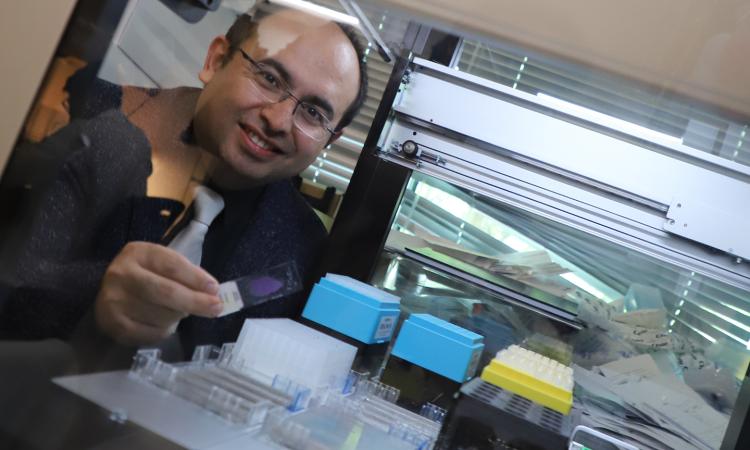
Mapping Protein Interactions to Fight Lung Cancer
BME research Ahmet Coskun is pioneering a new research area and building a company around technology that visualizes spatially how cells touch, sense, and regulate nearby cells.
BME research Ahmet Coskun is pioneering a new research area and building a company around technology that visualizes spatially how cells touch, sense, and regulate nearby cells.
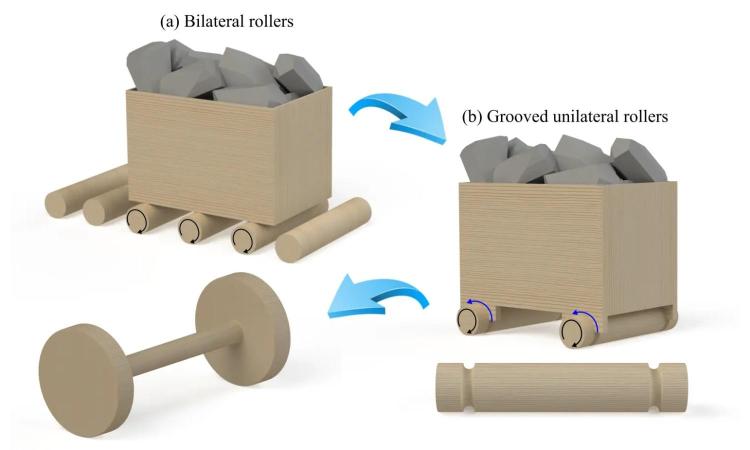
Engineering the Origin of the Wheel
A multidisciplinary team of researchers used structural mechanics and computational design to understand how the wheel was invented.
A multidisciplinary team of researchers used structural mechanics and computational design to understand how the wheel was invented.
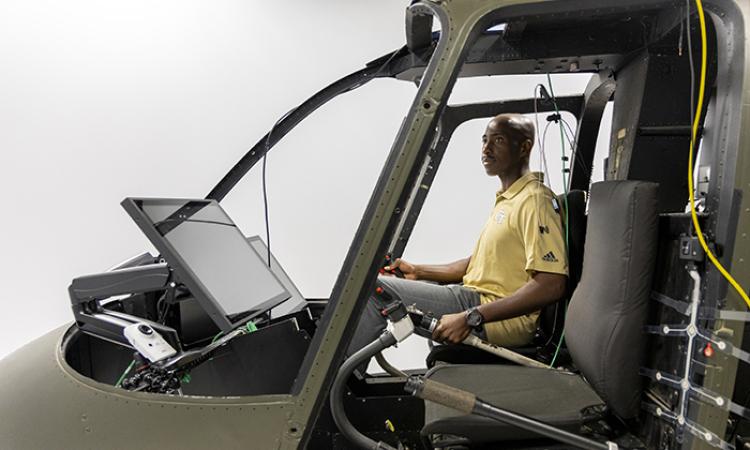
Meet Georgia Tech's Aspiring Astronauts
So far, 14 Yellow Jackets have traveled to space, but that number could grow if NASA selects any of the students or alumni who are among the new class of astronaut hopefuls.
So far, 14 Yellow Jackets have traveled to space, but that number could grow if NASA selects any of the students or alumni who are among the new class of astronaut hopefuls.
Pagination
- Previous page
- Current page 10
- Next page